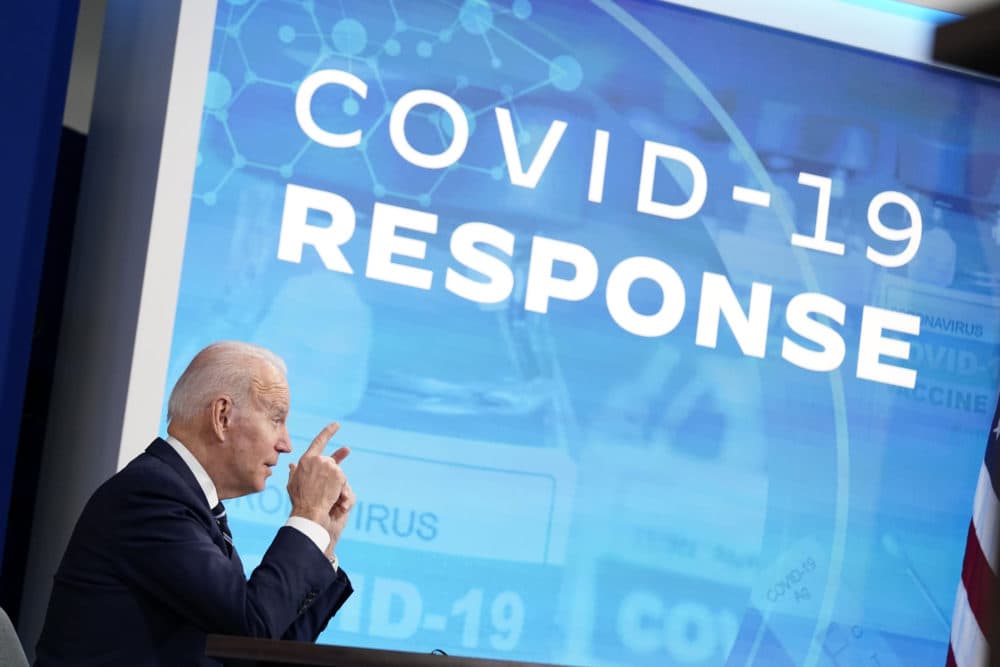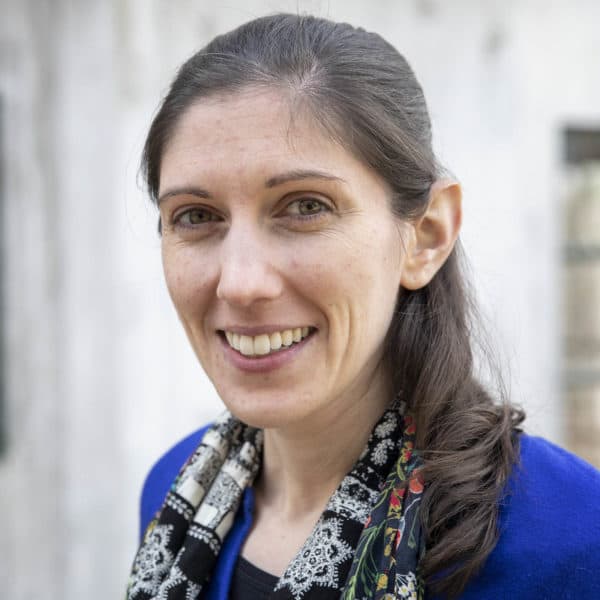Advertisement
What the latest federal COVID-19 funding package could mean for Mass.

Congress is considering a $10 billion deal to help fund the fight against COVID. Both chambers still need to pass the funding, but Massachusetts and the country are already getting a glimpse of what’s at stake.
Last month when Congress nixed COVID funding from a larger spending bill, the federal government was forced to start cutting key elements of the public health infrastructure built during the pandemic. These cuts come at the same time as significant state-level changes, including the closure of 30 free testing sites in Massachusetts.
Here is a look at some of the changes underway in Massachusetts — and what another injection of cash could mean for the pandemic response.
Free Testing, Treatment and Vaccinations
In the past, the federal government has made sure that those without insurance can access free testing, treatment and vaccination for COVID-19. But last week it stopped footing the bill for testing. And this week, it did the same for vaccines.
Massachusetts residents can still get free tests and vaccines through the remaining state-sponsored sites, including 11 testing locations and several vaccination clinics.
When it comes to COVID treatments, the story is a bit more complex. The Biden administration announced it had to stop purchasing additional doses of treatments. But, while the existing supply lasts, it is still providing the medications for free.
This works for some medications, such as the oral antiviral paxlovid. But other COVID therapeutics, such as monoclonal antibodies, require an infusion. The federal government is no longer paying for the cost associated with administering the infusion.
That leaves some patients in a predicament: Get monoclonal antibody treatment and face an unknown bill — or forgo treatment and hope you don’t get severely ill.
Advertisement
“These are hard decisions for them to make," said Scott Dryden-Peterson, medical director of COVID Outpatient Therapy at Mass. General Brigham.
This could change if Congress approves the additional $10 billion in funding for COVID programs, and if federal officials at the department of Health and Human Services (HHS) decide to reinstitute the programs that provide free testing, treatment and vaccination.
“HHS under the secretary will work through how to best deploy these very limited resources to satisfy the most urgent of the urgent needs,” said White House COVID-19 Coordinator Jeff Zients at a press briefing on Tuesday.
Dryden-Peterson argues that as the federal government pursues a strategy of remaining open and resuming many elements of pre-pandemic life, it’s important to provide for those at most risk.
“Staying open will mean more people get COVID, and we need to be able to respond to take care of those who are vulnerable from getting severely ill,” he said. “The lack of support to be able to provide care for them is a major challenge of that strategy.”
Tracking The Virus And New Variants
With or without new federal funding, there are big changes in tracking the virus.
As multiple states close free testing sites, and people use more at-home rapid tests, there are fewer PCR test results. This means fewer sources of data for tracking the virus.
At the same time, the federal government has drastically reduced its investment in genomic sequencing, which allows scientists to identify and track new variants. In Massachusetts, federal funds now cover the cost of sequencing only about 120 samples each week. That number used to be — on average — 5,000 each week, according to Bronwyn MacInnis, director of Pathogen Genomic Surveillance at the Broad Institute of MIT and Harvard.
MacInnis said the drop makes for a low-resolution picture of what’s happening.
“Hopefully, we'll move towards a world where that gives us enough information, but we're not there yet,” she said. “It's certainly not clear what's to come and whether that will be sufficient data for us to really have a good sense of what's going on.”
The Broad Institute — which does the bulk of the sequencing in Massachusetts –– is now paying for additional sequencing, MacInnis said, and there are active discussions with state officials to figure out what comes next for Massachusetts and how much surveillance to do.
Her bigger concern, she said, is whether other places in the US and the world will do enough surveillance to identify new variants early enough to avoid being caught unprepared.
The Future of COVID Vaccine Research
Another concern from the Massachusetts scientific community is what will happen to the investment in developing the next generation of COVID vaccines.
In March, when the White House started rolling back COVID services due to lack of funds, it also announced that “the Administration does not have the funding for necessary investments in research and to support the development of promising new vaccine candidates.”
This worries Ofer Levy, director of the Precision Vaccines Program at Boston Children's Hospital.
“Right now, we're at huge risk,” he said.
Levy said the enormous investment by the Trump Administration in Operation Warp Speed was a great success: there are now safe and effective vaccines. However, he said, the current vaccines are far from perfect. They’re costly. They require multiple doses. They need to be refrigerated, which is a serious challenge in rural parts of many lower-resource countries.
Levy said continued investment in vaccine research is critical — but also “uncertain.”
“If that whole huge amount of money just completely dissipates,” he said. “We're in for a rude awakening in the years ahead.”
He points to another coronavirus outbreak — the SARS outbreak in 2003 — where, he said, funding for vaccine research stopped prematurely.
“We wouldn't have been able to respond as quickly to COVID had we not had the investment in SARS,” Levy said. “And even in SARS, they pulled the plug on the funding. We would have been in an even better position had we continued the research on coronaviruses and vaccines against them.”
This article was originally published on April 05, 2022.
This segment aired on April 5, 2022.

